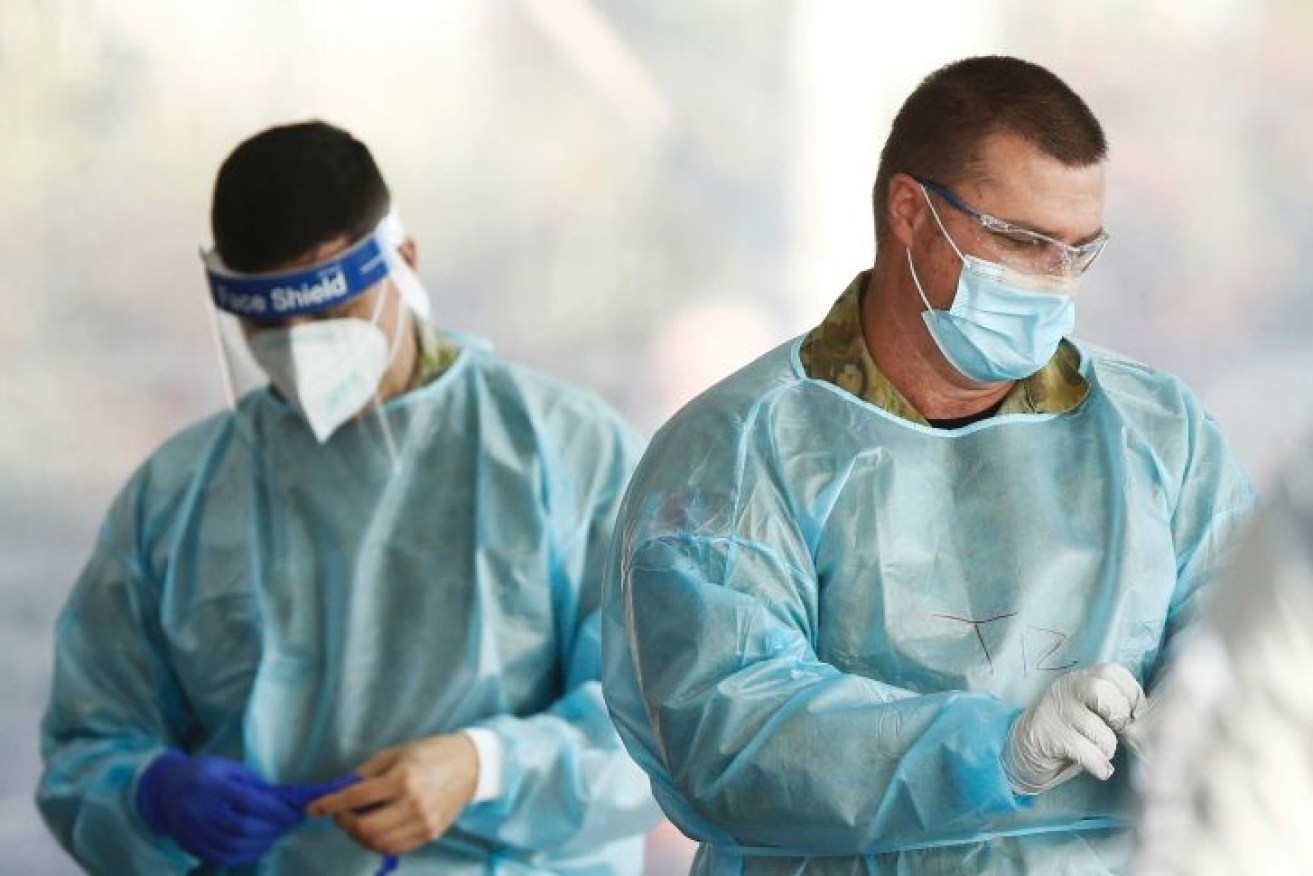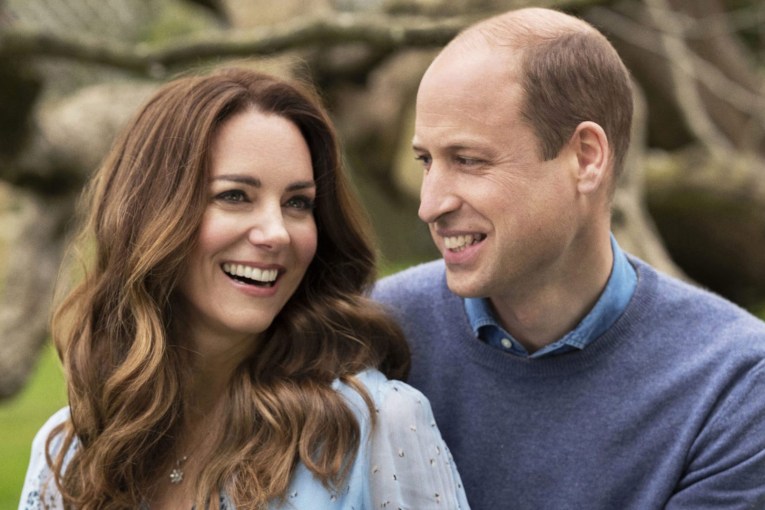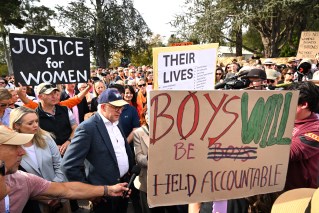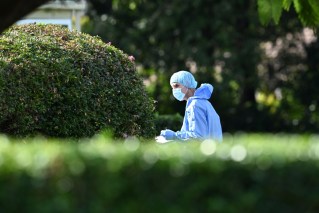Panic at the checkout as hardest lockdown of all for SA may affect Qld border decision
South Australia is set to enter Australia’s most stringent lockdown with a six-day plan to crush a concerning cluster in Adelaide’s north, a move that immediately sparked a wave of panic-buying in the city and may have an impact on when Queensland opts to open its border with Victoria and greater Sydney.

A British health chief has warned that the UK variant may spread more rapidly. (Photo: AAP)
Australia has received a stark coronavirus reminder with South Australia preparing to enter the nation’s harshest lockdown for six days to crush Adelaide’s cluster.
From midnight all schools will close along with universities, pubs, cafes, food courts and takeaway food outlets.
Regional travel will be banned and aged care centres will go into lockdown.
Factories will close, along with the construction industry, and elective surgery will cease.
Wedding and funerals will be banned. All outdoor sport and exercise will be banned, and masks will be required outside the home.
Just one person per household will be allowed to leave home once each day to buy groceries with supermarkets to remain open.
“We are going hard and we are going early,” SA Premier Steven Marshall told reporters in Adelaide.
Soon after the harsh lockdown was announced, Adelaide residents started flocking to shopping centres to stock up on essentials despite warnings not to panic buy.
The Adelaide cluster has risen to 22 cases, sparking the initial lockdown which will be followed by eight days of further restrictions.
Queensland, the Northern Territory, Tasmania and WA have slammed the gates shut on SA.
NSW is telling people to delay travel to the state, while Victoria has asked for South Australians to cancel all non-essential travel.
However, the NSW decision not to shut its border with SA completely may have an influence on the Palaszczuk Government’s decision regarding when to open up Queensland’s border to all states, a move it has previously signalled was likely before Christmas.
There was speculation the border may be open to Victorians well before Sydneysiders.
After the news of the lockdown broke, Premier Annastacia Palaszczuk tweeted: “South Australia – thank you for what you’re doing. We’re with you. Stay safe.”
The Adelaide cluster and Melbourne’s deadly outbreak both spread after the virus escaped hotel isolation regimes.
“That is our major risk now of reintroduction of COVID-19 into Australia, as we have seen in Adelaide over recent days,” Acting Chief Medical Officer Paul Kelly told reporters in Canberra.
But Kelly is confident South Australia will get on top of the latest infections.
“It is hard and fast,” he said.
“South Australia has made the decision on the basis of the information that they have at hand.”
Victorian Premier Daniel Andrews warned he would shut the border if people ignored travel advice and crossed the border unnecessarily.
“If they do well in containing this outbreak, every Australian does well,” he said.
South Australia has asked for an additional 45 Australian Defence Force troops to join the 100 already on the ground.
Before the lockdown announcement, Acting Prime Minister Michael McCormack said there was no reason for interstate travel restrictions.
“We do need Australians to get back to work and we do need those borders to be open,” he told the Nine Network on Wednesday.
Border closures have been a thorn in federal-state relations throughout the pandemic.
WA Premier Mark McGowan said he would stick to an ultra-cautious approach to restarting quarantine-free travel.
“My view is the best thing to do is keep the virus out,” he said.
The Adelaide cluster prompted doctors to urge a cautious approach on returning to the workplace in other parts of the country.
Australian Medical Association president Omar Khorshid said it was too soon for a mass return to workplaces and public transport.
“The only way to keep these numbers low is to continue to follow the habits that have proven so effective in getting Australia to such an enviable position,” he said.
Dr Khorshid said workplaces were one of the main places where coronavirus spreads.
“Working from home minimises the possibility of workplace transmission, reduces the geographic spread of the virus and makes our public transport systems safer,” he said.
Victoria has now notched 19 days without a new coronavirus case.
ACT has recorded a rare infection, with a diplomat in quarantine testing positive for the disease.












